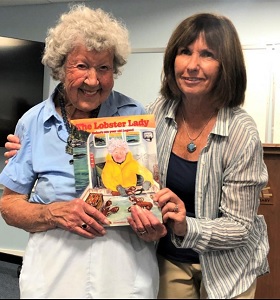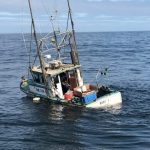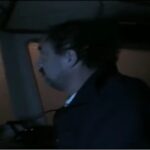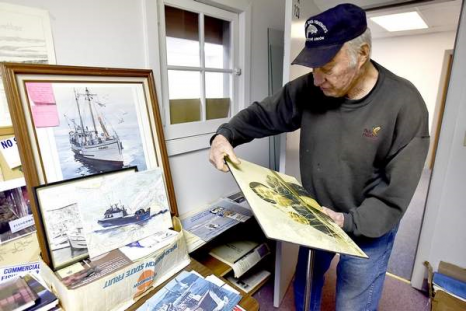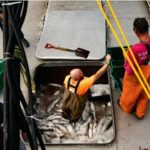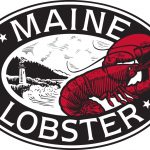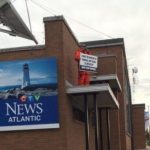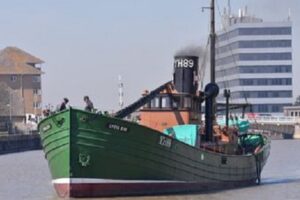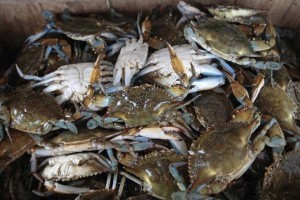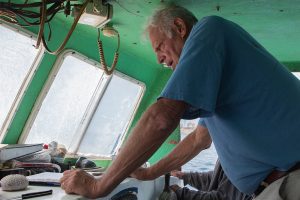Author Archives: borehead - Moderator
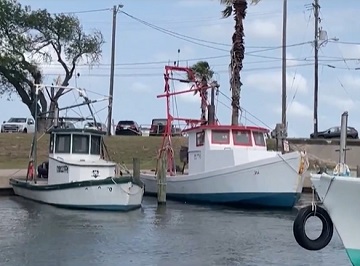
Three oyster bays closed may have a strong impact on the oyster industry
Texas Parks and Wildlife Commissioners have voted to permanently close three bays to oyster fishing, and the closures have many Texas oystermen worried about what this means for their livelihoods. The unanimous vote comes after commissioners listened to hours of testimony against the closures from oyster fishermen. Parks and Wildlife shut down Carlos, Ayres, and Mesquite bays near Matagorda Island. TPWD says the decision to close the bays is to let the oysters grow, but oyster fishermen, like Johnny Jurisich, say the closures could hurt the oyster industry. >click to read<
Texas oyster season begins with severe restrictions for fishermen – The six-month Texas oyster season opened on Nov. 1 and Texas Parks and Wildlife Commissioners have voted to permanently close three bays near Matagorda Island to oyster fishing. >click to read< 08:53
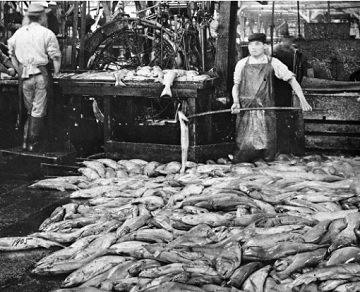
The Rise and Fall of Pacific American Fisheries: Fairhaven’s Historic Salmon Cannery
Before becoming part of Bellingham, Fairhaven grew up along railway lines. The town boomed with the region’s industries — fishing, lumber, and mining — into the 1870s, seeking the Northern Pacific Railway terminus. After the railway instead went to Tacoma, in 1873, multiple economic panics drove Fairhaven into a depression by the 1890s. However, Fairhaven soon found economic revitalization in what would become the largest salmon cannery in the world: Pacific American Fisheries. Whatcom County’s early settlers viewed the salmon crowding every stream as an almost inexhaustible resource. Fisheries would prepare salmon fresh, dried, salted, or smoked, but turned most into hog feed and fertilizer. Whatcom County had 11 large canneries by 1899, but many shuttered within years due to mismanagement. >click to read< 18:10
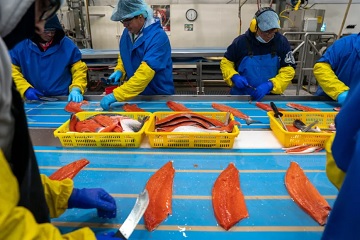
After record haul, Bristol Bay sockeye harvest forecast to drop next year
Alaska’s Bristol Bay sockeye salmon harvest is forecast to tumble next year to some 36.6 million fish, according to Alaska state Department of Fish and Game biologists. The downturn comes on the heels of a record 2022 haul of more than 60 million sockeye. The Bristol Bay region in Southwest Alaska sustains the world’s biggest sockeye runs and draws fishermen from Alaska, Washington and other states. The record 2022 harvest was 104% higher than the 20-year average, and these fish, as well as smaller numbers of other salmon, were collectively worth more than $351 million. The 2023 harvest, if the forecast is accurate,,, >click to read< 12:45
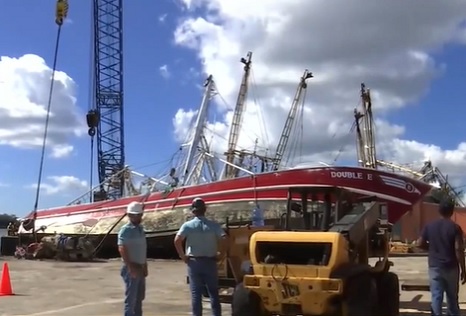
Removal of shrimp boats begins near Fort Myers Beach
It was a bittersweet moment for shrimpers who could finally see just how badly they were damaged. The first boat, the Double E, was finally lifted after being thrown onto its side during Hurricane Ian. Wayne Romano has worked on the Double E for 18 years. “It gives me promise that maybe soon we will be back to work,” Romano said. Seeing the boat like this is heartbreaking for him. And when he got onboard to get his clothes, it made him seasick for the first time in his life. “I only made it four foot inside that boat and I had to lay down because it throws, it throws your whole equilibrium off and everything,” Romano said. “It felt like the boat was going to flip over.” 2 Videos, >click to read< 10:22
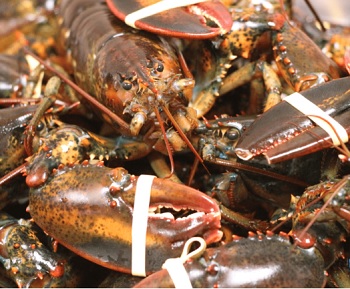
Canadian Lobster Industry Implements Elog JOBEL
Electronic logbooks (Elog) for fisheries are essential for the timely processing and analysis of capture declarations and the sustainable management of Canadian fisheries. Since 2018 in Québec, fishers using JOBEL have demonstrated their fishing activity is compliant with national and international requirements. In the Department of Fisheries and Oceans, fishers, harvesters and scientists now have the information required to evaluate the durability of the Québec lobster fishery. Lobster fishers and harvesters in the Gaspe area now provide the Marine Stewardship Council with accurate information impacting other species during the certification process for their spring fishery. >click to read< 09:41

Maine to get $1.2 million for lobster gear research and communications tools
Maine’s lobster industry will benefit from $1.2 million in federal funding to study the potential impacts of new regulations on fishing gear. The money comes from the National Oceanic and Atmospheric Administration’s Sea Grant American Lobster Initiative. The Maine Department of Marine Resources will get $750,000 to test and evaluate lobster gear modifications that could be required under a proposal from NOAA to protect endangered right whales. Just over $400,000 will go to the Gulf of Maine Lobster Foundation to provide lobstermen with on-board computers, sensors and other technology to help them collect data and images. >click to read< 08:32
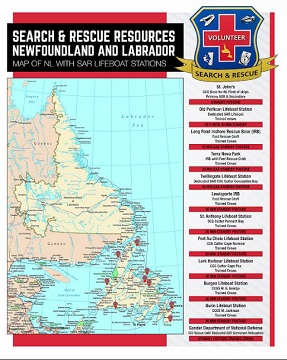
SEA-NL renews call for improved search and rescue for Labrador, federal inquiry into fishing vessel safety
Seaward Enterprises Association of Newfoundland and Labrador (SEA-NL) joins in the renewed call for more search and rescue resources for Labrador and a federal inquiry into fishing vessel safety — encouraging other stakeholders like the FFAW-Unifor to do the same. “Safety at sea is a life-and-death issue that demands all hands on deck,” says Merv Wiseman, a member of SEA-NL’s board of directors, and an outspoken advocate for search and rescue/fishing vessel safety. “The lives of mariners off Labrador are as important as the lives of mariners off Newfoundland, and search and rescue resources must reflect that.” >click to read< 21:03
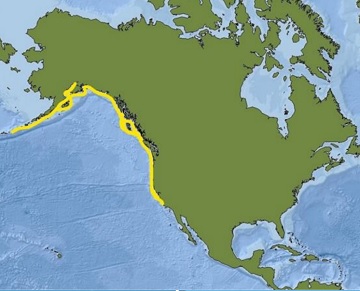
Dungeness crab die-off underway along US West Coast
An important species of crab found primarily along the West Coast is fighting off a combination of stressors that experts at the North Atlantic and Atmospheric Administration say has fishermen finding piles of dead shellfish, and the impacts are affecting the economy. Dungeness crabs are typically found along water beds, and their harvest can be worth a quarter-billion dollars annually. NOAA Fisheries believes the combination of a lack of oxygen, harmful algal blooms, water temperatures and ocean acidification are playing a role in the animal’s disappearance. >click to read< 16:12

Fishermen take federal government to court over right to sell Class B licences again
A law firm representing a little over half of the 75 remaining fishermen in the Maritimes with Class B licences is taking the federal government to court for a second time. Class B licences were created in 1976 by the federal government with the goal of reducing fishing in the name of conservation. They were assigned to fishermen who had another primary source of income and can’t be reassigned or sold. Class B licences only allow for 30 per cent of the fishing that Class A licences allow. Donald Publicover, 71, of Nova Scotia wants the ability to sell or transfer his licence to ensure financial stability for his family, which includes two adult children with cerebral palsy. >click to read< 11:04
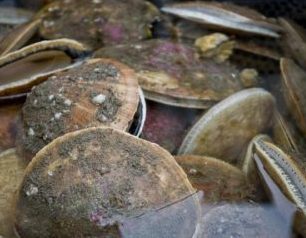
New Research Supports Opening of Currently Closed Scallop Areas
Data presented to the New England Fishery Management Council last month provide the latest evidence that long-closed areas of the Northwest Atlantic can be sustainably opened to the scallop fishery. The Fisheries Survival Fund, which represents the vast majority of full-time Atlantic Sea scallop fishermen, has long believed that these areas can be safely opened, and supports efforts to do so in light of this new evidence. The Northern Edge of Georges Bank (more formally known as Closed Area II Habitat Area of Particular Concern), has been closed to all commercial fishing activity since 1994. >click to read< 10:00
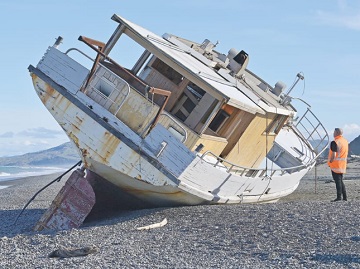
New Zealand: Abandoned shipwreck finally removed from East Coast beach
An abandoned boat that proved a thorn in the side of both Gisborne District Council and the police has finally been removed from a remote East Coast beach – six months after it washed ashore. However the owner remained elusive, meaning the council has been left with an invoice of over $10,000 for the clean-up. On 9 April, the former fishing trawler San Rosa was abandoned at sea after its three crew members were winched to safety by helicopter. The boat was recently purchased in Tauranga and was just two days into its maiden voyage with its new owners when it ran into difficulty. Photos, >click to read< 09:14

At 102, Virginia Oliver is a Maine lobstering legend
Virginia Oliver, who was born in 1920, has been harvesting lobsters since the age of 10. At the age of 102, she still works side-by-side with her 79-year-old son. “My father was a lobster dealer,” she said. “It’s just my whole life.” Her boat, the Virginia, docks at Spruce Head on Maine’s St. George Peninsula from spring to fall. Three times a week during the lobster season, she gets up for work at 3 a.m. “She’s been lobstering for about 92 years,” her son said. Video, >click to read< 08:28
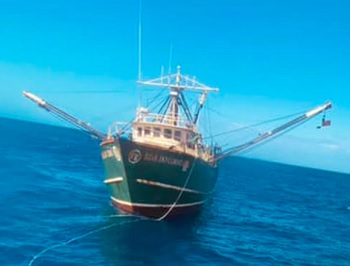
Adrift fishing boat rescued by Coast Guard off Hatteras
The U.S. Coast Guard rescued a fishing boat that went adrift off Hatteras on Tuesday. The U.S. Coast Guard says its crews were told a 75-foot fishing trawler, F/V Ilha Do Corvo, drifted away southeast of Hatteras. They say they went to the boat’s last known location, but the trawler had drifted into the Gulf Stream and had been pushed north toward Rodanthe. WITN is told that even with limited communications with the boat, the rescuers from the station in Elizabeth City were able to locate it. The Coast Guard did not say how many people were on board at the time. Photos, >click to read< 15:14
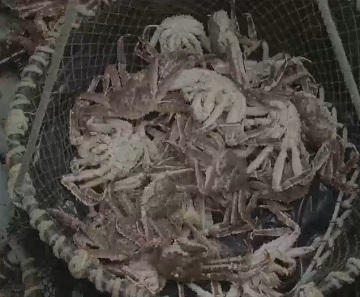
Canceled crab season could devastate Unalaska
As the top fishing port by volume in the nation, fishing runs in the veins of Unalaska. Officials say that nearly everyone in the city relies on the robust seafood industry. “Our only industry is our fishing industry. So everything that goes on in communities are related,” said Frank Kelty, the Fishery consultant for the City of Unalaska. “In 2019, we had the quota of 45 million pounds. Then last year, we were down to 25 million pounds,” Kelty said. This year, that industry came to a drastic halt. “You know 60, 70 boats not buying fuel. Not buying groceries. It adds up pretty quick,” Kelty said. “Those boats aren’t fishing, they are not buying groceries every five days when they come in for a trip, Video, >click to read< 13:42

Fishermen fight back on imported shrimp
A big part of Louisiana is the shrimp industry, but the Louisiana Shrimp Taskforce worries they will not survive due to the overwhelming amount of imports. “We are Louisiana, I don’t care how you look at it. When you talk about Louisiana, there’s only a couple of things you talk about, and fishing is one of them. You don’t want to come to Louisiana and eat Indonesia shrimp, you want to eat Louisiana shrimp,” says Acy Cooper chairman of the Louisiana Shrimp Taskforce. Cooper says they have gotten the numbers, showing the United States imported billons of shrimp from foreign countries like Indonesia, Peru, Thailand and Vietnam. Video, >click to read< 11:44
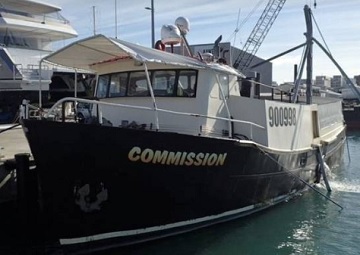
Skipper fined after boat collides with 266m container ship
The 19.5-metre-long vessel collided with the Kota Lembah container ship in July 2021. Skipper Mike Te Pou was on board with two crew members and an MPI observer at around 3.15am when he saw the Kota Lembah on his radar. The crew were setting out longlines for fishing and Te Pou decided to help them, despite seeing the container ship on his radar. Investigations Manager Pete Dwen said: “He remained away from the wheelhouse for 40 minutes. Didn’t check on the location of the Kota Lembah and at 3.55am; the two vessels collided. >click to read< 11:15

Prosecutors say Half Moon Bay crab fisherman set traps in MPA
A commercial crab fisherman is facing charges for unlawfully setting crab traps in a Marina Protected Area off the coast of Half Moon Bay, prosecutors said. The San Mateo County District Attorney’s Office filed charges Monday against George Jue, who operates a fishing vessel, F/V Take Time. The District Attorney’s complaint alleges that on January 8, California Department of Fish and Wildlife wardens saw five buoys located inside the Western boundary line of Montara State Marine Reserve. >click to read< 10:27
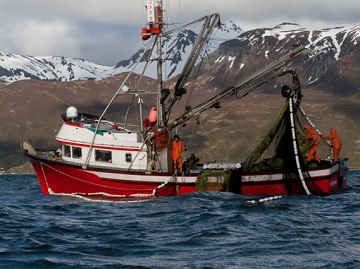
Coast Guard: Additional Actions Needed to Improve Commercial Fishing Vessel Safety Efforts
To improve safety in the extremely dangerous commercial fishing industry, Coast Guard examines fishing vessels’ documents and safety equipment, and conducts outreach to fishers, among other efforts. But, Coast Guard hasn’t fully implemented 17 of 22 statutory requirements to improve commercial fishing vessel safety. For example, Coast Guard hasn’t developed a training program for commercial fishers or re-established an advisory committee on industry safety issues. In addition, Coast Guard doesn’t have a detailed plan to guide their efforts to fully implement the outstanding statutory requirements. Our recommendations address this and more. >click to read< 09:12
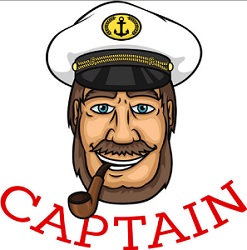
Coast Guard halts illegal use of “paper captains” in WA-based tuna fishing operation
The Coast Guard said in a statement last week that it intervened Oct. 19 to stop the use of illegal foreign nationals on a commercial fishing vessel that operated out of the state of Washington. A Coast Guard Sector Columbia River law enforcement team inspected an 89-foot fishing vessel and determined that the vessel was in violation of the Jones Act — specifically, they were in violation for utilizing a “paper captain.” Paper captain is a term applied to an individual listed on documents as a U.S.-flagged vessel’s captain but in actuality serves as a deckhand or in a similar lower-level capacity. It is federal law that a documented vessel be under the command of a U.S. citizen. In addition to violating the Jones Act, the vessel had several safety violations, including: Degraded immersion suits; an inoperable Emergency Position Indicating Radio Beacon (EPIRB) hydrostatic release; and failure to conduct safety drills. >click to read< 18:00
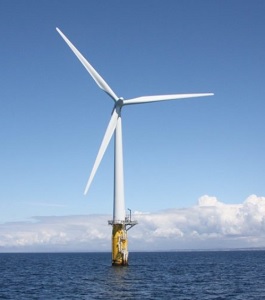
The great US offshore wind-power boom has begun to falter
Plans for massive offshore wind farms that President Joe Biden hopes will power as many as 10 million American homes by 2030 are starting to wobble. On Monday, New Jersey utility Public Service Enterprise Group Inc. said it’s deciding whether to pull out of Ocean Wind 1, a proposed project in the Atlantic Ocean that would generate 1.1 gigawatts – enough for 500,000 homes. Less than two weeks earlier, New England utility Avangrid Inc. said its similarly sized Commonwealth Wind project was no longer viable because of higher costs and supply chain woes. Offshore wind projects are “facing a number of headwinds,” Soaring inflation, rising interest rates and supply chain snarls around the world are threatening to hobble the offshore wind boom that both federal and local policy makers have been planning for years off the US East Coast. >click to read< 13:28
Athearn Marine Agency Boat of the Week: 47’x15′ Novi Lobster Boat, Rebuilt, and Updated
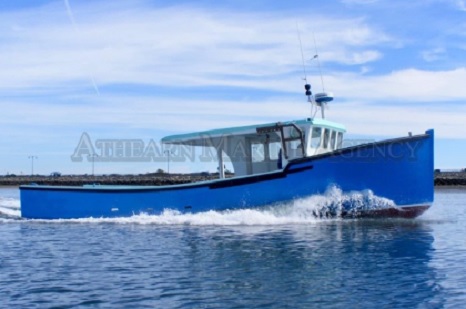 To review specifications, information, and 30 photos’, >click here<, To see all the boats in this series >click here< 11:38
To review specifications, information, and 30 photos’, >click here<, To see all the boats in this series >click here< 11:38
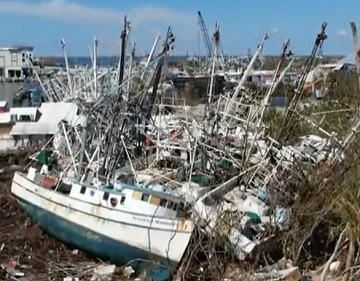
Fishing industry in Lee County ‘wiped out’ by Hurricane Ian
Among the wreckage, a small lime-green building, the Island Seafood Market, is somehow still standing. Owner Casey Streeter has had to tear out everything that was once inside. But the biggest hit was to what’s behind the shop. Streeter said all of their grouper boats were damaged by Ian, and even worse, they lost their docks and ice house to the hurricane. “I couldn’t believe it,” Jesse Clapham recalled seeing the damage for the first time. “It blew my mind.” Clapham is the fleet manager at Erickson and Jensen Seafood company. He’s worked on shrimp boats for 35 years and he’s dealt with hurricanes before – but nothing like this. Video, >click to read< 10:21
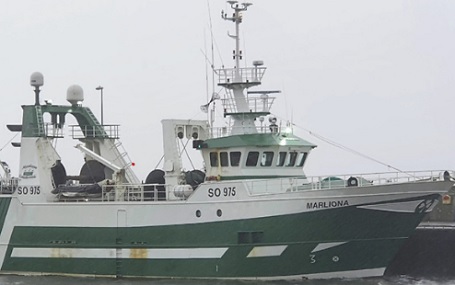
Quick Action of Crew Member Saved Fishing Skipper’s Life
The quick action of a crew member on a Donegal fishing vessel probably saved the life of his skipper when his arm was trapped by a trawl door, an investigation has found. The Marine Casualty Investigation Board (MCIB) report into the incident involving the whitefish trawler F/V Marliona has noted that the trawl door was not secured adequately and that it was in the wrong position. This made it prone to movement from side to side. At the time of the incident, the vessel was taking a slight roll,,, >click to read< 08:51
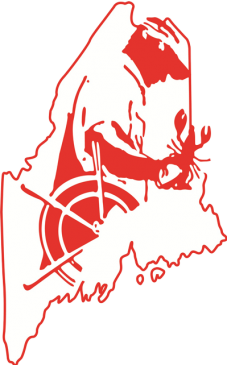
Maine Lobstermen’s Association Assails Inadequate and Inequitable Vessel Speed Rule
KENNEBUNK, Maine – (November 1, 2022), In official comments submitted this week, the Maine Lobstermen’s Association (MLA) called on the federal government to apply the law fairly as it develops new rules that would protect North Atlantic right whales from vessel strikes – which are known to have killed multiple endangered whales in U.S. waters in recent years. The National Oceanic and Atmospheric Administration (NOAA) has proposed expanding the current mandatory seasonal speed restrictions of 10 knots or less in designated areas of the ocean and require most vessels measuring 35 to 65 feet in length to comply. Though MLA supports the proposed measures in the speed rule, it objects to NOAA’s continuing pattern of over-regulating U.S. commercial fisheries and under-regulating other sectors, leaving endangered whales inadequately protected from deadly human interactions. >click to read<07:53
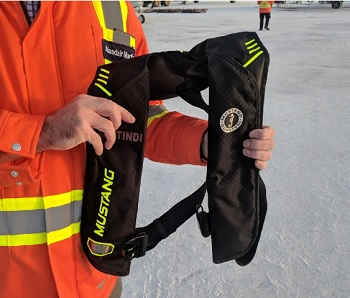
PFD’s: New Brunswick to make personal flotation devices mandatory for commercial fishing industry
The New Brunswick government has introduced legislation to make personal flotation devices or life jackets mandatory for the commercial fishing industry, answering a recommendation issued after two fishermen drowned in 2016. There is no requirement for fishers to wear life jackets, or PFDs, under current legislation, something the Transportation Safety Board of Canada said should change given the frequency of drowning in the industry. Fishing vessels are not considered workplaces under the province’s Occupational Health and Safety Act, leaving WorkSafeNB unable to enforce safety standards. >click to read< 21:43
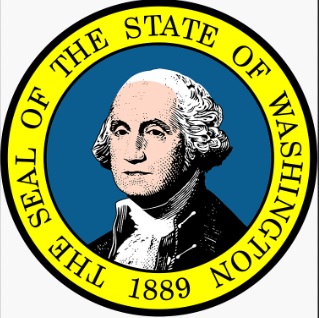
Letter: Columbia River Non-Tribal Gillnet Fishery Is No Threat to Recovery of ESA-Listed Salmon
Salmon management should be based on the best available science, but the efforts Sen. Wilson praises are not supported by the science. The commercial gillnet fishery harvests within all management guidelines, The non-tribal gillnet fishery in the lower Columbia is an important part of the cultural fabric of Washington state. It is a component of a commercial fishing industry that provides hundreds of year-round jobs in rural Washington and has for 150 years. Commercial fishermen were deemed “essential workers” during the pandemic because they harvest protein to feed residents of the Northwest and of the world and contribute substantially to Washington’s food security and the state economy. >click to read< By Robert Sudar, Longview 19:58
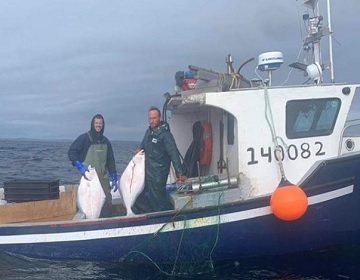
Jeanette Russell lost her son at sea a year ago. Now she’s starting a coalition.
Jeanette Russell is the mother of Marc Russell, who disappeared off the coast of Mary’s Harbour with crew mate Joey Jenkins aboard his fishing boat the Island Lady just over a year ago. “Labrador has twice the amount of coastline as the island portion of Newfoundland. It has three times the land mass compared to the island of Newfoundland.” “A secondary search and rescue unit does not have the accountability to always be able to respond.” That’s why Russell says she’s starting her own group, called the Labrador Coalition for Search and Rescue, to keep the pressure on government. >click to read< 13:38
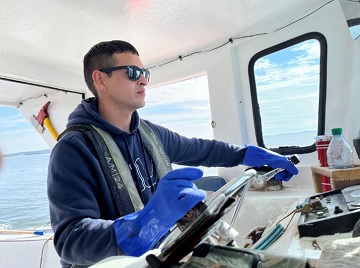
‘We tried it your way, it didn’t work’: First Nation calls on Ottawa to end fisheries dispute
Catching and selling lobster during the fall season is how some Mi’kmaw fishermen of Potlotek First Nation make a living. Craig Doucette and a few others from Potlotek have been fishing in the St. Peter’s Bay area of Nova Scotia since the beginning of October. Doucette says he is fishing under his inherent Treaty Right to fish, hunt and gather in pursuit of a moderate livelihood, with those rights upheld by a Supreme Court ruling. Fisheries and Oceans Canada (DFO) sees what Doucette is doing as illegal because he is fishing out of season and will affect lobster conservation. >click to read< 09:51






